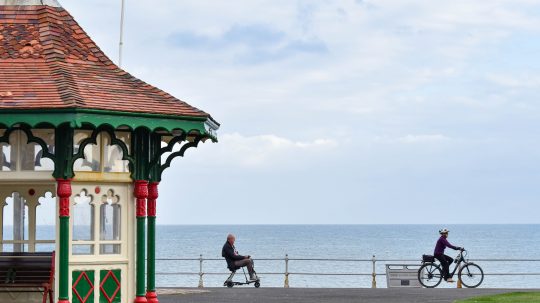The government have been urged to consider reforming universal credit by implementing an ‘essentials guarantee’ to ensure that people from low-income households who are receiving the benefit do not go without basic necessities. Currently, 90% of low-income households on universal credit are going without essentials. Questions have been raised in the House of Lords about its future.
Universal credit at its lowest level ever
The current basic rate of universal credit falls £35 short per week of the actual cost of essentials like food, utilities and vital household goods in the UK. In 2019, the number of people made destitute increased by 54% from official statistics taken in 2017.
Victoria, who suffered heart attack and a stroke, began receiving payments to look after her family. Speaking about the current rate of universal credit, she stated: “If I don’t eat anything, don’t turn the lights on, have a cold shower, and don’t go anywhere, I can probably live on that much. Just sit in a chair, in the dark, not being a human being.”
In 2021-22 the Trussell Trust gave out 2.1m food parcels. The trust has since reported that almost half of households see their payments reduced by deductions and caps. For example, a household can lose 25% of their standard allowance to repay debts to the Department for Work and Pensions (DWP).
One person told charities the Joseph Rowntree foundation (JRF) and the Trussell Trust: “I couldn’t afford heating last year so I have no intentions to use the heating this year, if my electric goes up much more I won’t be able to afford to cover my rent and the few bills that I have to pay now, so I could end up homeless.”
A 60-year-old man who lives with his adult son said: “I did have a loan [from the DWP] the other week to buy another cooker. I’ve got to pay it back, a little bit each month. I just finished paying off the last loan from them.”
The JRF said: “Support has eroded over decades and the basic rate (‘standard allowance’) of universal credit is now at its lowest ever level as a proportion of average earnings.”
Could universal credit be reformed with the ‘essentials guarantee’?
According to a report by the JRF and The Trussell Trust, 66% of the public agree that the basic rate of universal credit is too low, when shown the April 2023 rate.
The essentials guarantee would ensure that people on universal credit receive the essentials. The guarantee would be developed in line with public attitude insights and focus groups and would enshrine into legislation three things:
- an independent process to regularly determine the essentials guarantee level, based on the cost of essentials (such as food, utilities and vital household goods) for the adults in a household (excluding rent and council tax).
- that universal credit’s standard allowance must meet this basic level
- that deductions (such as debt repayments to government, or as a result of the benefit cap) can never pull support below this level.
The UK government would be required to set the level of the essentials guarantee at least annually, based on the recommendation of the independent process. However, analysis by the Trussell Trust indicates that it would need to be at least £120 a week for a single adult and £200 for a couple.
The cost of implementing the essentials guarantee is estimated to be £22bn a year in 2023/24 – assuming there would be a full rollout.
The JRF stated: “While this is not insignificant, given the devastating impact that people going without essentials has on our society and economy, there will be savings to public services as a result of improved outcomes, which are not accounted for in our costing.”
People going without essentials has a knock-on affect on society
Households unable to meet basic needs comes at a significant cost to the economy and wider society, negatively impacting people’s health, employment and education outcomes, and can increase costs to other public services such as the NHS.
Not being having access to adequate housing, food and healthcare is protected under international human rights law, which the UK has ratified and must abide to.
A 44-year-old mum of three who is receiving universal credit said: “When I used to have a job supporting other people to try to get back to work, I’d do an exercise where I’d get them to draw a wall and then write on the bricks what barriers stood in their way. what. Then we’d try to address those barriers. Now that I’m in the situation myself, I can see what the barriers are but I just can’t see a way to overcome them.”
Answering questions about the report in the House of Lords yesterday, The Parliamentary Under-Secretary of State, Department for Work and Pensions, Viscount Younger of Leckie said that the government’s focus is supporting people to work – even though there are working households that rely on universal credit for essentials.
The Viscount stated: “The department is aware of the report, but no formal assessment has been made. We have a long-term approach to tackling poverty and supporting people on lower incomes. The Government are increasing support for low-income and vulnerable households, with welfare expenditure forecast to rise from £251.8 billion in 2022-23 to £275.6 billion in 2023-24. As the Spring Statement made clear, the focus is on supporting workforce participation, helping people move into work and higher earnings.”
The JRF and the Trussell Trust have launched a campaign to continue to urge the government to implement an essentials guarantee to ensure that low income households on universal credit are not left without the basics.





